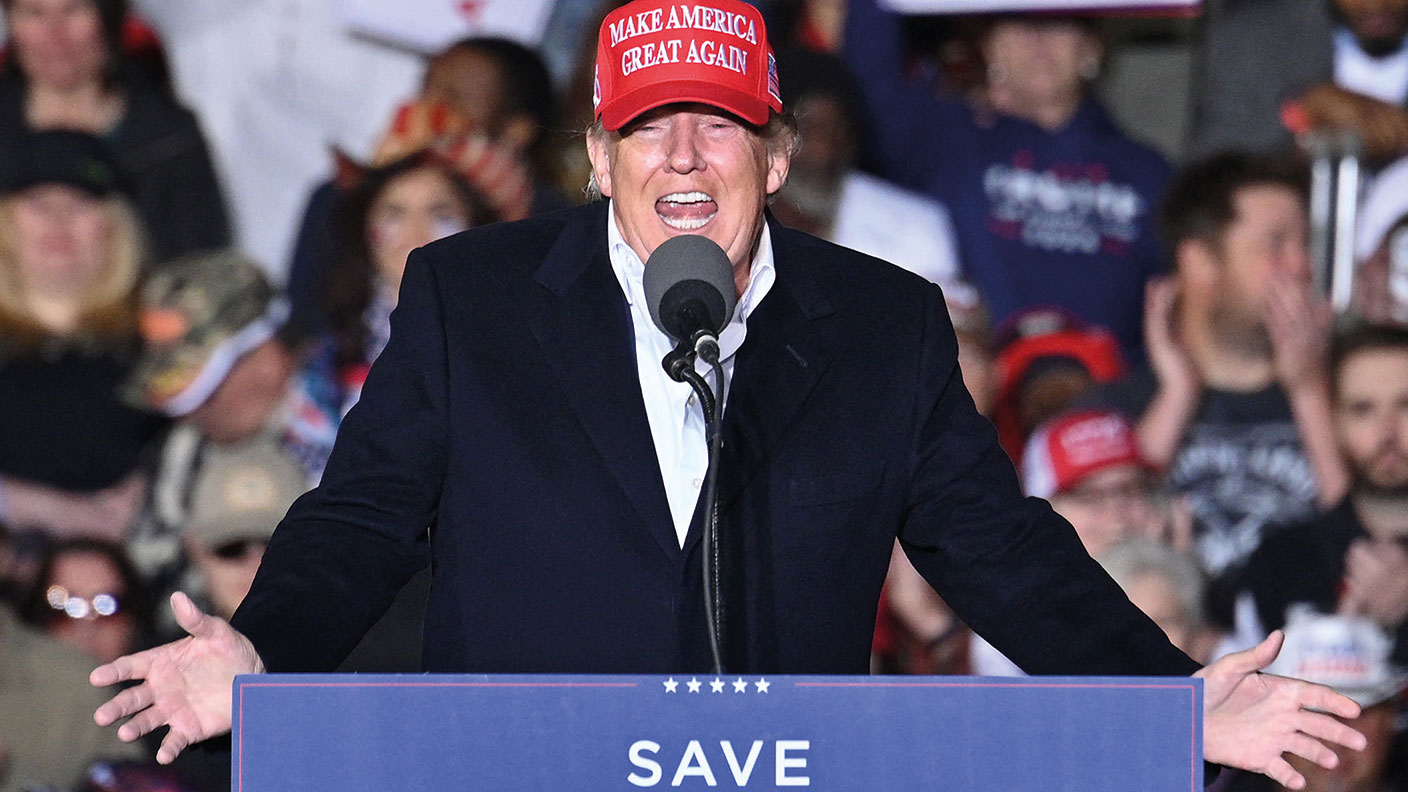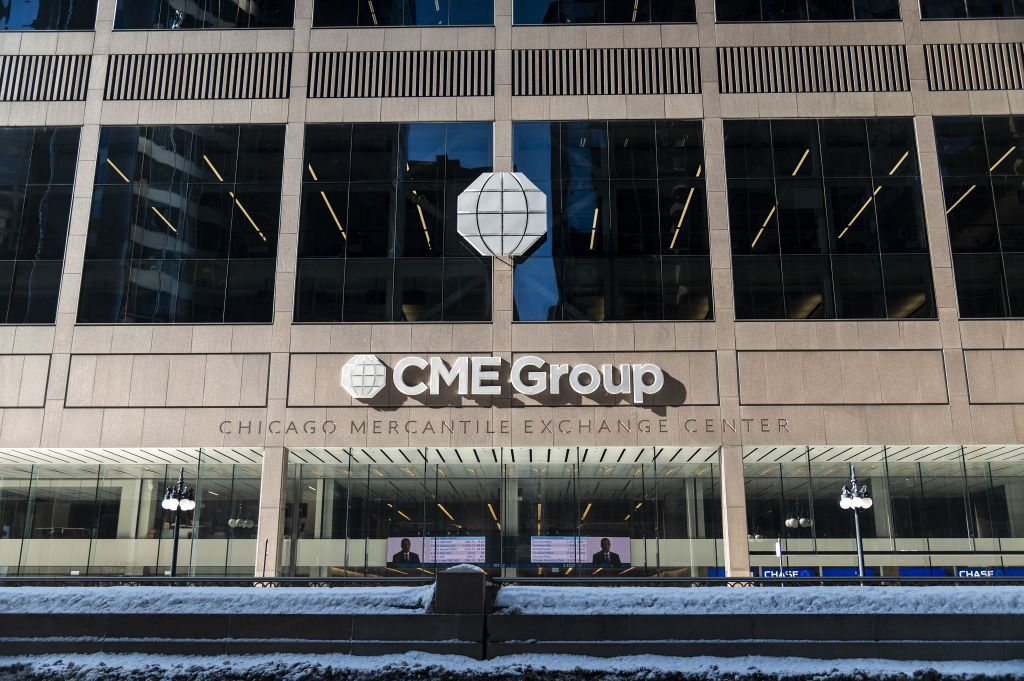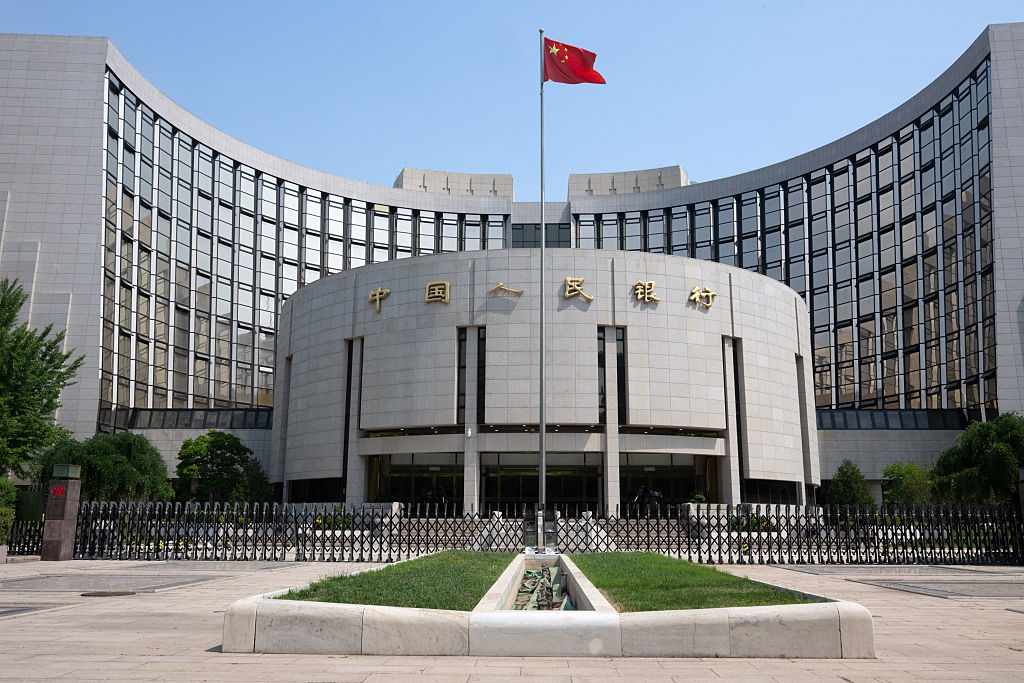How to short-sell Trump’s media empire
Donald Trump’s would-be media empire looks like a promising target for short sellers. Matthew Partridge explains how to play it.


Get the latest financial news, insights and expert analysis from our award-winning MoneyWeek team, to help you understand what really matters when it comes to your finances.
You are now subscribed
Your newsletter sign-up was successful
Want to add more newsletters?
Imagine a technology company run by a 75-year old with a history of multiple bankruptcies, in sectors ranging from airlines to casinos. Let’s also imagine that the individual in question is being investigated by various bodies across the US for everything from questionable tax reporting practices to opaque business dealings.
Let’s add to the picture the fact that, far from focusing his mind on the day-to-day running of his business, he will also be spending most of the next two years in an attempt to run for president (again). To top it all off, his new company is entering the market not via a traditional initial public offering (IPO), but via a special purpose acquisition company (Spac), or cash shell – typically speculative financial vehicles set up to engineer instant stockmarket listings.
Viewed in this way, it’s hard to see why anyone would invest in Digital World Acquisition Corporation (Nasdaq: DWAC). Last October DWAC agreed a deal with former president Donald Trump to merge with his social-media company Trump Media & Technology Group, which plans to launch a social-media app, Truth Social, as well as other services, including streaming television. DWAC doesn’t own any other assets, so you are effectively making a bet on Trump’s media empire being a success. And so far, enough investors have bought in to this notion to give DWAC a sizeable market cap of $3.46bn (£2.55bn).
Try 6 free issues of MoneyWeek today
Get unparalleled financial insight, analysis and expert opinion you can profit from.

Sign up to Money Morning
Don't miss the latest investment and personal finances news, market analysis, plus money-saving tips with our free twice-daily newsletter
Don't miss the latest investment and personal finances news, market analysis, plus money-saving tips with our free twice-daily newsletter
Trump’s fans are hard to monetise
Trump does have a massive following, both on and off social media. Before his Twitter (see below), Facebook and Instagram accounts were suspended following the riots at the Capitol on 6 January last year, he had a combined 150 million followers – a huge lead over any other contender for the Republican nomination. However, turning his celebrity into hard cash is easier said than done. An attempt to monetise his audience through his own blog was a failure, as the site struggled to find advertisers, and closed after a month. Similarly, a more recent “history tour” with Bill O’Reilly resulted in plenty of unsold seats.
Trump’s controversial legacy also makes it almost certain that his social network would find it impossible to attract anyone other than his strongest supporters and keenest fans. This would not only limit the pool of potential users, but it would also mean that it lacked the cut and thrust of debate that takes place on Twitter.
A final stumbling block is Trump’s desire to run for president again in 2024. Time spent political campaigning would leave him little room to oversee the venture. In doing so, he will also have to engage heavily with the established media, including television stations and existing social networks, which will be direct competitors to his new company.
Given all of these problems, it’s perhaps not surprising that after rising tenfold to $175, DWAC is now trading at less than half of that level, at $84. I still think this is far too high. So I would suggest shorting it at £17 per $1, covering your position if it rises above $142. This would give you a total downside risk of £986.
Trading techniques: tweeting tipsters
When Donald Trump was president, there was a big debate over whether his social-media communications – and his tweets specifically – contained useful trading signals or not. One 2020 study by Carl Ajjoub, Thomas Walker and Yunfei Zhao at the John Molson School of Business, Concordia University, found that any negative tweets Trump made about non-media companies did indeed cause their share prices to fall. Another study by Peder Gjerstada, Peter Filip Meyna, Peter, Molnár and Thomas Dowling Næss of the Norwegian University of Science and Technology found that his tweets, particularly those on trade, also generally pushed the S&P 500 lower, and boosted gold.
Trump was indefinitely banned from Twitter in the wake of last year’s riots at Capitol Hill. But there are plenty of other controversial financial tweeters. By far the most prominent is Tesla’s founder Elon Musk. Musk has had a few brushes with the US financial regulator, the Securities and Exchange Commission, over his habit of making announcements about Tesla over the social network, which ended up with him being fined $20m for tweeting in 2018 that he was thinking of taking Tesla private at $420 a share.
Musk doesn’t just talk about Tesla. A tweet about GameStop last year was credited with sending its share price up to nearly $500, while his tweets on cryptocurrencies, including bitcoin and dogecoin, have also moved prices. Still, the long-term impact of his “views” is debatable: both bitcoin and GameStop are now well off their post-Musk peaks, while Tesla has fallen by more than 23% this year. In short, even if Twitter gives you the occasional idea, always do your own research.
How my tips have fared
The past two weeks have seen four of my five long tips fall in value. Asset manager Rathbones Group declined from 1,866p to 1,858p, supermarket J Sainsbury dipped from 285p to 283p, while telecoms firm Airtel Africa fell from 149p to 140p (see page 32). Transport firm National Express also fell from 264p to 254p. However, construction firm Morgan Sindall rose from 2,150p to 2,238p. Overall, my five long tips are making a profit of £2,497, down on two weeks ago, even after accounting for closing the DR Horton tip.
My short tips have been mixed. Two have moved in my favour, but the other two gained in value. Cinema chain AMC fell from $16.64 to $14.44 and Chinese real-estate broker KE Holdings fell from $21.74 to $19.11. However, remote medicine firm Teladoc increased from $73.18 to $75.28 and online sales firm Hubspot increased from $455 to $483. Overall, the gains from AMC and KE Holdings outweighed the losses from Teladoc and Hubspot, so my short tips are now making a total profit of £2,775 compared with £2,597 a fortnight ago.
My nine open tips are showing a combined profit of £5,272. I now have five long tips (Rathbones Group, J Sainsbury, Airtel Africa, National Express and Morgan Sindall) and five short tips (AMC, KE Holdings, Teladoc, Hubspot and Digital World Acquisition Corp), so my portfolio is now balanced.
However, I’m going to lock in some profits by suggesting you raise your stop loss on Morgan Sindall to 1,900p (from 1,850p); on Rathbones Group to 1,550p (from 1,500p); on J Sainsbury to 150p (from 144p); on Airtel Africa to 100p (from 95p) and National Express to 130p (from 123p). I’d also cut the price at which you cover the AMC short to $35 (from $40).
Get the latest financial news, insights and expert analysis from our award-winning MoneyWeek team, to help you understand what really matters when it comes to your finances.

-
 8 of the best properties for sale with minstrels’ galleries
8 of the best properties for sale with minstrels’ galleriesThe best properties for sale with minstrels’ galleries – from a 15th-century house in Kent, to a four-storey house in Hampstead, comprising part of a converted, Grade II-listed former library
-
 The rare books which are selling for thousands
The rare books which are selling for thousandsRare books have been given a boost by the film Wuthering Heights. So how much are they really selling for?
-
 Should you sell your Affirm stock?
Should you sell your Affirm stock?Affirm, a buy-now-pay-later lender, is vulnerable to a downturn. Investors are losing their enthusiasm, says Matthew Partridge
-
 Profit from pest control with Rentokil Initial
Profit from pest control with Rentokil InitialRentokil Initial is set for global expansion and offers strong sales growth
-
 In the money: how my trading tips fared in 2025
In the money: how my trading tips fared in 2025The success of the open positions offset losses on closed ones, says Matthew Partridge
-
 Coreweave is on borrowed time
Coreweave is on borrowed timeAI infrastructure firm Coreweave is heading for trouble and is absurdly pricey, says Matthew Partridge
-
 Circle sets a new gold standard for cryptocurrencies
Circle sets a new gold standard for cryptocurrenciesCryptocurrencies have existed in a kind of financial Wild West. No longer – they are entering the mainstream, and US-listed Circle is ideally placed to benefit
-
 Profit from other investors’ trades with CME Group
Profit from other investors’ trades with CME GroupCME Group is one of the world’s largest exchanges, which gives it a significant competitive advantage
-
 Investors need to get ready for an age of uncertainty and upheaval
Investors need to get ready for an age of uncertainty and upheavalTectonic geopolitical and economic shifts are underway. Investors need to consider a range of tools when positioning portfolios to accommodate these changes
-
 How much gold does China have – and how to cash in
How much gold does China have – and how to cash inChina's gold reserves are vastly understated, says Dominic Frisby. So hold gold, overbought or not